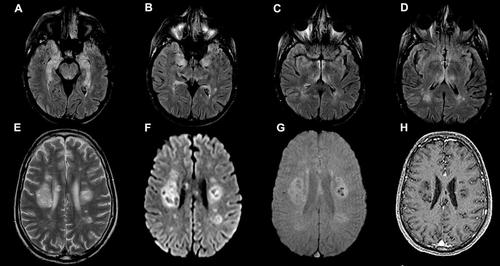Would early intervention make a difference?
Common complaints include a lack of smell and taste, as well as "brain fog" - in which sufferers often complain of ongoing confusion, lack of focus, and migraines - well after they've 'recovered' from the disease.

Last September, a study offered the first clear evidence that Covid-19 'hijacks' brain cells to make copies of itself - starving nearby cells of oxygen. The same researchers found last July that some Covid-19 patients have developed serious neurological complications, including nerve damage.
Now, a large-scale study in the UK of more than 80,000 participants "offers convincing evidence that COVID-19 may indeed result in long-term cognitive deficits – even in those who suffer the mildest form of the disease," according to Dr. Rhonda Patrick.
A new large-scale study including 81,337 UK participants offers convincing evidence that COVID-19 may indeed result in long-term cognitive deficits – even in those who suffer the mildest form of the disease. 👇
— Dr. Rhonda Patrick (@foundmyfitness) August 5, 2021
Meanwhile, Patrick also points to a different study which found a significant loss in grey matter.Severe cases had the greatest cognitive decline of 0.47 standard deviations compared to non-infected individuals. This deficit surpasses the cognitive decline found in former stroke victims, as well as cognitive differences between groups that differ by 10 yrs of age. 👇
— Dr. Rhonda Patrick (@foundmyfitness) August 5, 2021
Bret Weinstein brings up an excellent, carefully-worded point in response to the above, tweeting: "it's vital to determine how the emergence of cognitive deficits interact with early interventions and preventive measures."A new large-scale study including 81,337 UK participants offers convincing evidence that COVID-19 may indeed result in long-term cognitive deficits – even in those who suffer the mildest form of the disease. 👇
— Dr. Rhonda Patrick (@foundmyfitness) August 5, 2021
A terrible development.
— Bret Weinstein (@BretWeinstein) August 5, 2021
Assuming the result holds up, it's vital to determine how the emergence of cognitive deficits interact with early interventions and preventive measures. Sending people with Covid home to sicken in place (and to sicken others) never made sense. https://t.co/9IaFyk0Nmz
A terrible development.
— Bret Weinstein (@BretWeinstein) August 5, 2021
Assuming the result holds up, it's vital to determine how the emergence of cognitive deficits interact with early interventions and preventive measures. Sending people with Covid home to sicken in place (and to sicken others) never made sense. https://t.co/9IaFyk0Nmz
Indeed, would early intervention with, say, Ivermectin, impact these findings?


No comments:
Post a Comment